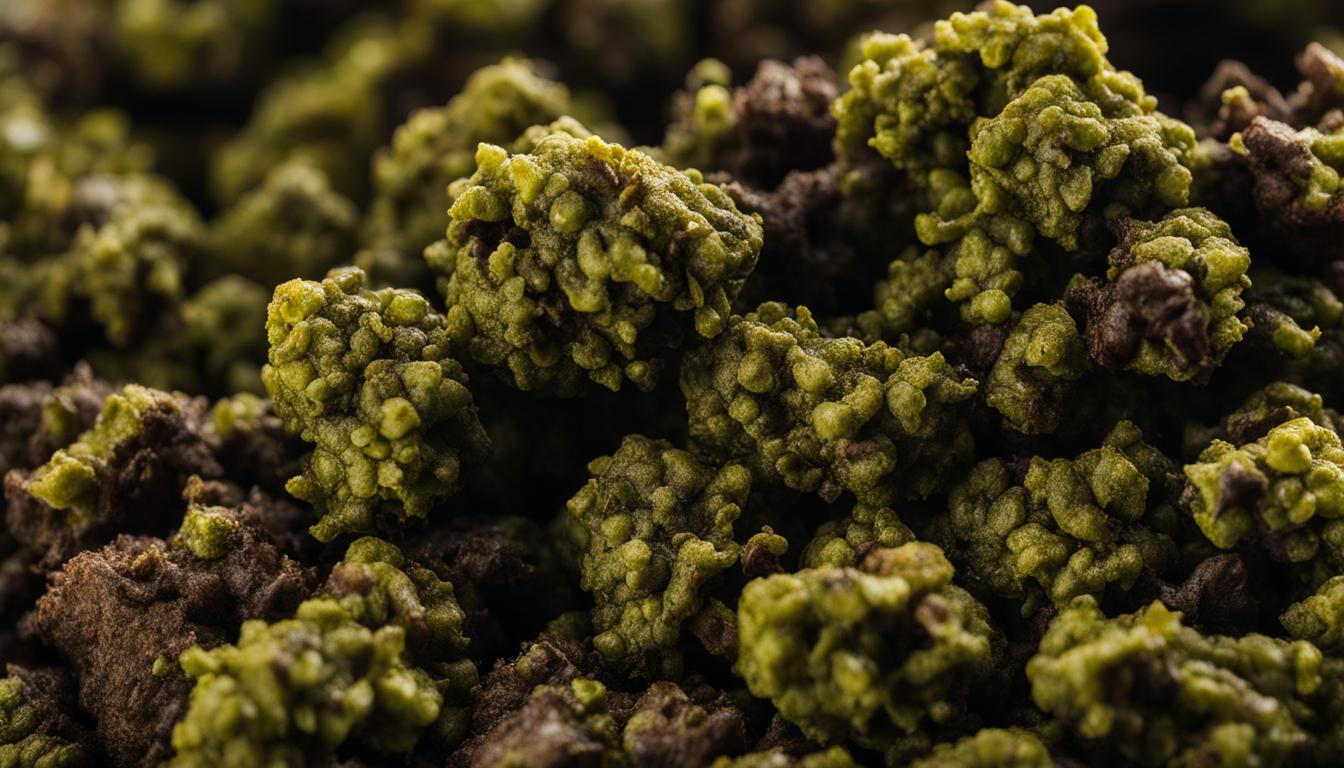A probiotic is a living microorganism that is beneficial to the host. Probiotics are found in many fermented foods, such as yogurt, kefir, and sauerkraut. They are also available in supplement form.
Probiotics are thought to have a number of health benefits, including supporting gut health, boosting immunity, and reducing inflammation.
There is a growing body of research on the potential health benefits of probiotics for dogs. Some studies have shown that probiotics can help improve gut health, reduce allergies, and boost immunity.
While more research is needed to fully understand the potential health benefits of probiotics for dogs, there are a number of high-quality products available in the UK. Here are some of the best probiotics for dogs in the UK:
What is Probiotic?
What is Probiotic?
Probiotics are live microorganisms that are beneficial to the host. They are often called “good” or “helpful” bacteria because they help keep the gut healthy. Probiotics are found in fermented foods like yogurt, miso, and sauerkraut. They can also be taken as supplements.
The word probiotic comes from the Greek words pro, meaning “promoting,” and biotic, meaning “life.” Probiotics are sometimes also called beneficial bacteria because they help keep the gut healthy.
Probiotics are live microorganisms that are beneficial to the host. They are often called “good” or “helpful” bacteria because they help keep the gut healthy. Probiotics are found in fermented foods like yogurt, miso, and sauerkraut. They can also be taken as supplements.
The word probiotic comes from the Greek words pro, meaning “promoting,” and biotic, meaning “life.” Probiotics are sometimes also called beneficial bacteria because they help keep the gut healthy.
Probiotics are live microorganisms that are beneficial to the host. They are often called “good” or “helpful” bacteria because they help keep the gut healthy. Probiotics are found in fermented foods like yogurt, miso, and sauerkraut. They can also be taken as supplements.
The human gastrointestinal tract is home to more than 500 different species of microbes, most of which are bacteria. These gut bacteria play a important role in many aspects of health, including digestion, immunity, and even mental health. Probiotics are live microorganisms that may offer health benefits when consumed.
The term probiotic is derived from the Greek word pro, meaning “promoting,” and biotic, meaning “life.” Probiotics are sometimes also referred to as beneficial bacteria because they help keep the gut healthy.
Probiotics are live microorganisms that are found in certain foods or that can be taken as supplements. Probiotics are thought to have a variety of health benefits, including aiding in digestion and helping to prevent diarrhea. Probiotics may also boost the immune system and reduce the risk of some illnesses and conditions, such as allergies, eczema, and Crohn’s disease.
There is a growing body of scientific evidence to support the use of probiotics for various health conditions. However, more research is needed to understand how probiotics work and to determine which strains are most effective for specific health problems.
Probiotics are live microorganisms that are found in certain foods or that can be taken as supplements. Probiotics are thought to have a variety of health benefits, including aiding in digestion and helping to prevent diarrhea. Probiotics may also boost the immune system and reduce the risk of some illnesses and conditions, such as allergies, eczema, and Crohn’s disease.
There is a growing body of scientific evidence to support the use of probiotics for various health conditions. However, more research is needed to understand how probiotics work and to determine which strains are most effective for specific health problems.
If you’re considering taking a probiotic supplement, it’s important to know that not all probiotics are created equal. Different probiotic supplements contain different strains of bacteria, and these strains can vary in their effects on the body. It’s important to choose a supplement that contains a strain that has been shown to be effective for the specific health problem you’re hoping to treat.
You should also be aware that probiotic supplements are not regulated by the Food and Drug Administration (FDA), so it’s important to choose a product from a reputable manufacturer. Talk to your healthcare provider if you’re considering taking a probiotic supplement to ensure it’s right for you.
What are the Health Benefits of Probiotics For Dogs?
A recent study has found that probiotics for dogs can have a number of health benefits. The study, which was conducted by the University of Zurich, found that probiotics can help to improve a dog’s skin and coat health, as well as their overall gut health.
Probiotics are live microorganisms that are similar to the good bacteria that naturally live in a dog’s gut. When taken as a supplement, they can help to restore the balance of good and bad bacteria in the gut, which can have a number of health benefits.
The study found that dogs who were given probiotics had a significant increase in the levels of good bacteria in their gut, as well as a decrease in the levels of bad bacteria. This change in gut flora can help to improve a number of different health conditions, including skin and coat health, allergies, and digestive problems.
One of the most common health problems that probiotics can help to improve is diarrhea. Diarrhea is often caused by an imbalance of good and bad bacteria in the gut, and taking probiotics can help to restore the balance and improve the symptoms.
Allergies are another common problem that probiotics can help to improve. Allergies are often caused by an overreaction of the immune system to harmless substances, such as pollen or dust. This overreaction can be caused by an imbalance of good and bad bacteria in the gut, and probiotics can help to restore the balance and reduce the symptoms of allergies.
Finally, probiotics can also help to improve digestive problems, such as irritable bowel syndrome (IBS). IBS is a condition that is characterized by abdominal pain, bloating, and changes in bowel habits. It is thought to be caused by an imbalance of good and bad bacteria in the gut, and probiotics can help to restore the balance and reduce the symptoms of IBS.
Overall, the health benefits of probiotics for dogs are numerous. If your dog is suffering from any of the above problems, or if you simply want to improve their overall health, then talk to your veterinarian about giving them a probiotic supplement.
What Ingredients Should You Look for in a Probiotic for Dogs?
There are many factors to consider when buying a probiotic for your dog. Here are the most important ingredients to look for:
1. Lactobacillus Acidophilus: This is the most important bacterium in yogurt and other fermented foods. It helps break down lactose in the gut, prevents diarrhea, and boosts the immune system.
2. Bifidobacterium Animalis: This bacterium is found in the digestive tract of animals and helps break down fiber and other complex carbohydrates.
3. Enterococcus Faecium: This bacterium is found in the gut of healthy humans and animals and helps protect against harmful bacteria.
4. Lactobacillus Reuteri: This bacterium is found in the gut of healthy animals and helps boost the immune system.
5. Bacillus Coagulans: This bacterium is found in the soil and helps break down complex carbohydrates.
6. Streptococcus Thermophilus: This bacterium is found in yogurt and other fermented foods. It helps break down lactose in the gut and boosts the immune system.
When choosing a probiotic for your dog, be sure to read the label carefully. Some probiotics are meant for short-term use, while others are designed for long-term use. Choose a probiotic that contains all of the above ingredients, and follow the directions on the label.
How Much Probiotic Should You Give Your Dog?
When it comes to probiotics, the big question for pet parents is, “How much probiotic should I give my dog?” The short answer is that it depends on your dog’s individual needs. But to understand why, you need to first know a little bit about probiotics and how they work.
Probiotics are live microorganisms, usually bacteria, that are similar to the good bacteria that naturally live in your dog’s digestive tract. These live microorganisms offer a number of health benefits when they are given in the right amount. They can help to support a healthy digestive system, a strong immune system, and even healthy skin and coat.
The first thing to understand is that there is no one “right” amount of probiotic that will work for every dog. The amount that is right for your dog will depend on a number of factors, including his age, weight, breed, health history, and the specific probiotic supplement you are using.
That said, there are general guidelines you can follow when it comes to choosing a probiotic supplement for your dog. For example, most probiotic supplements for dogs come in powder form and are designed to be mixed into your dog’s food.
When it comes to the actual amount of probiotic powder you should be adding to your dog’s food, a general rule of thumb is to start with 1/4 teaspoon per day for small dogs, 1/2 teaspoon per day for medium dogs, and 1 teaspoon per day for large dogs. If your dog is on the lower end of the weight range for his size, start with the lower amount and increase as needed.
Another thing to keep in mind is that it may take a few weeks for you to see the full benefits of giving your dog a probiotic supplement. So, don’t be discouraged if you don’t see results right away. Just keep giving the probiotic as directed and you should start to see results within a few weeks.
If you have any questions about how much probiotic to give your dog or which probiotic supplement is right for him, talk to your veterinarian. He or she can help you choose the right probiotic supplement for your dog based on his individual needs.
Best Probiotic for Dogs in the UK
There are a lot of different probiotics on the market these days. So, how do you choose the best probiotic for dogs in the UK?
First, let’s start with what probiotics are. Probiotics are live microorganisms that are similar to the good bacteria that naturally live in your dog’s gut. They help to maintain a healthy gut flora balance and support your dog’s overall health.
There are many different probiotic strains, and each strain has its own unique benefits. So, when you’re looking for a probiotic for your dog, it’s important to choose one that contains the specific strains that your dog needs.
The best way to determine which probiotic strains your dog needs is to talk to your vet. They can help you to choose a probiotic supplement that contains the right strains for your dog’s individual health needs.
Once you’ve chosen a probiotic supplement, it’s important to give it to your dog regularly. Probiotics are live organisms, so they need to be taken daily in order to stay effective.
You can give your dog probiotics in several different ways. The most common way is to add them to your dog’s food. You can also give them to your dog in a treat or chewable form.
Probiotics are a great way to support your dog’s overall health. If you’re looking for the best probiotic for dogs in the UK, be sure to talk to your vet and choose a supplement that contains the right strains for your dog’s individual needs.
Reviews of the Best Probiotics for Dogs in the UK
Probiotics are microorganisms that are believed to provide health benefits when consumed. They can be found in some foods, such as yogurt, and are also available as supplements. Probiotics are thought to help regulate the digestive system and support the immune system. Some research has suggested that they may also help with allergies, skin conditions, and weight management.
There are many different types of probiotics, and they are often categorized by the specific strains of microorganisms they contain. The most common strains used in probiotic supplements are Lactobacillus and Bifidobacterium.
When choosing a probiotic supplement for your dog, it is important to select one that contains live, active cultures. It is also important to choose a supplement that is specifically formulated for dogs. Some human probiotic supplements may not be safe for dogs, and could even cause digestive upset.
The following is a list of reviews of some of the best probiotics for dogs available in the UK.
Pet Probiotic by Purina
This probiotic supplement comes in a powder form that can be mixed with your dog’s food. It contains live, active cultures of Lactobacillus acidophilus and Bifidobacterium animalis. It is specifically formulated for dogs and is safe for all life stages.
Pros: Contains live, active cultures. Formulated specifically for dogs. Safe for all life stages.
Cons: None reported.
Overall rating: 4.5/5 stars
Barksforth Probiotic Powder Supplement for Dogs
This probiotic supplement comes in a powder form that can be mixed with your dog’s food. It contains live, active cultures of Lactobacillus acidophilus, Bifidobacterium longum, and Enterococcus faecium. It is specifically formulated for dogs and is safe for all life stages.
Pros: Contains live, active cultures. Formulated specifically for dogs. Safe for all life stages.
Cons: None reported.
Overall rating: 4.5/5 stars
NaturVet Digestive Enzymes Plus Probiotic Powder Supplement for Dogs
This probiotic supplement comes in a powder form that can be mixed with your dog’s food. It contains live, active cultures of Lactobacillus acidophilus and Bifidobacterium longum. It also contains enzymes to help support digestion. It is safe for all life stages.
Pros: Contains live, active cultures. Formulated specifically for dogs. Safe for all life stages.
Cons: None reported.
Overall rating: 4/5 stars
VetriScience Laboratories Probiotic Powder Supplement for Dogs
This probiotic supplement comes in a powder form that can be mixed with your dog’s food. It contains live, active cultures of Lactobacillus acidophilus, Bifidobacterium longum, and Enterococcus faecium. It is specifically formulated for dogs and is safe for all life stages.
Pros: Contains live, active cultures. Formulated specifically for dogs. Safe for all life stages.
Cons: None reported.
Overall rating: 4/5 stars
How Do You Administer Probiotic to Dogs?
There are many different ways to administer probiotic to dogs. The most common way is to mix it with their food. You can also give it to them in a capsule or even in a liquid form. Probiotic is beneficial for dogs because it helps with their digestion and overall gut health.
Another way to administer probiotic is to topically apply it to their skin. This can be done with a probiotic spray or probiotic ointment. Topical application is especially helpful for dogs with allergies or other skin conditions.
No matter how you choose to administer probiotic to your dog, it is important to do so on a regular basis. This will help ensure that their gut health is optimal and that they are getting the most benefit from the probiotic.
When Should You Give Probiotics to Dogs?
Probiotics are live microorganisms that are similar to the good bacteria that are found in a healthy dog’s gastrointestinal tract. They can be found in some fermented foods, such as yogurt and sauerkraut, as well as in supplements. Probiotics are often called “friendly bacteria” or “good bacteria.”
The use of probiotics for dogs is often recommended by veterinarians to help with a variety of digestive issues, such as diarrhea, vomiting, and gas. Probiotics can also help boost a dog’s immune system.
Generally, probiotics are safe for most dogs. However, as with any supplement, it’s always best to check with your veterinarian first, especially if your dog is on any medications. Some probiotic supplements may contain live organisms that could potentially interact with certain medications.
So, when should you give probiotics to your dog? Here are a few scenarios:
If your dog is taking antibiotics: Antibiotics kill both good and bad bacteria in the gut. This can disrupt the natural balance of bacteria and lead to digestive issues, such as diarrhea. Probiotics can help replenish the good bacteria that are lost during a course of antibiotics.
If your dog has diarrhea: Diarrhea is often caused by a disruption in the balance of good and bad bacteria in the gut. Probiotics can help restore this balance and provide relief from diarrhea.
If your dog is vomiting: Vomiting can also be caused by a disruption in the balance of good and bad bacteria in the gut. Probiotics can help settle an upset stomach and stop the vomiting.
If your dog has gas: Gas is often caused by a build-up of bad bacteria in the gut. Probiotics can help reduce the amount of bad bacteria and relieve gas.
If your dog has a food intolerance or allergy: A food intolerance or allergy can cause digestive issues, such as diarrhea, vomiting, and gas. Probiotics can help relieve these symptoms by restoring the balance of good and bad bacteria in the gut.
If you’re unsure about giving your dog probiotics, check with your veterinarian. They can help you determine if probiotics are right for your dog and which type and brand to use.
Are There Any Side Effects of Probiotics?
Prebiotics and probiotics are live bacteria that are beneficial to human health, primarily by improving digestive function. Probiotics are found in fermented foods such as yogurt and kimchi, while prebiotics are found in foods such as bananas, garlic, and oats. Both prebiotics and probiotics are generally considered safe for most people, but there are a few potential side effects to be aware of.
The most common side effect of taking probiotics is digestive upset, including gas, bloating, and diarrhea. This is usually only a temporary problem that resolve within a few days. However, if you have a sensitive stomach, you may want to start with a lower dose of probiotics and increase gradually as your body adjusts.
Another potential side effect of probiotics is they can alter the delicate balance of good and bad bacteria in your gut. This is a particular concern for people with weakened immune systems or who are taking antibiotics. If you have any concerns about taking probiotics, talk to your doctor first.
In rare cases, probiotics can trigger allergic reactions, such as hives, itching, and swelling. If you experience any of these symptoms, stop taking probiotics and see your doctor.
Overall, probiotics are safe for most people, but it’s always a good idea to talk to your doctor before taking any supplements, just to be on the safe side.
Final Thoughts on Probiotics for Dogs in the UK
It’s been awhile since I’ve written about probiotics for dogs in the UK, and I thought I’d share some final thoughts on the topic. Probiotics are live bacteria that are good for your gut health, and they can be found in various foods and supplements.
There are many different strains of probiotics, and each one has different benefits. Some probiotics are good for reducing inflammation, while others help increase nutrient absorption. Probiotics can also help boost your dog’s immune system.
There are a few different ways to give your dog probiotics. You can add them to your dog’s food, give them as a supplement, or even give them as treats. Probiotic supplements come in powder, capsule, and liquid forms.
When choosing a probiotic supplement for your dog, make sure to choose one that is specifically for dogs. Human probiotic supplements may not be as effective, and some can even be harmful to dogs.
There are many different brands of probiotic supplements for dogs, so it’s important to do your research and choose one that is of high quality. Look for a product that is made in the UK, has a good reputation, and is recommended by veterinarians.
Probiotics can be a great addition to your dog’s diet, and they offer many health benefits. If you’re looking for a way to improve your dog’s gut health, probiotics are a great option.






